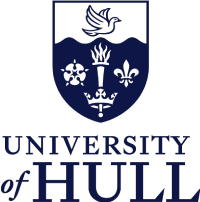Mr G Smith, Mr D Carradice
No more applications being accepted
Funded PhD Project (European/UK Students Only)
About the Project
Summary of Cluster
Diabetes is a national and international epidemic. In the UK a new person is diagnosed every 2 minutes and care of diabetes costs the NHS £1million per hour, every hour. Peripheral arterial disease (PAD) affects 1 in 3 people with diabetes over 50 years of age and the incidence of limb loss is 15 times higher in diabetics. These patients also suffer excessive mortality related to surgical interventions with up to 70% dying within 5 years of surgery. Outcomes for these patients locally are some of the worst in the UK.
To help address this problem he University of Hull is offering the following PhD projects which together will form a cohort of students bridging the gap between basic sciences and clinical applications and trials in this important disease. Projects include collaborations between some of the strongest and most active basic science and clinical research departments within the university.
Summary of PhD Project 2
Identification of predictors of successful revascularisation and wound healing in diabetic PAD patients
This project will aim to determine the most appropriate physiological measures for assessing outcomes in diabetic PAD, which does not register normally on the more commonly used clinical measurements of perfusion. Emerging measurement devices and imaging technologies have potential to more accurately predict which patients require additional invasive intervention to improve perfusion, with the associated risks this brings, and at what point that perfusion is adequate for repair of tissue loss.
Applicants should have at least a 2.1 undergraduate degree in a related discipline, together with relevant research experience. It is anticipated that the successful applicant will have a 1st class undergraduate degree or Masters level qualification.
Medically qualified applicants in relevant specialties will have the opportunity to undertake clinical sessions and on call duties, with appropriate remuneration, alongside their research.
Applications should be made through the HYMS web site stating the project title and supervisor’s name for PhD in Medical Sciences 2018 October full time.
PhD students at the University of Hull follow modules for research and transferable skills development and gain a Masters level Certificate, or Diploma, in Research Training, in addition to their research degree.
Successful applicants will be informed of the award as soon as possible and by 23 April 2018 at the latest.
Funding Notes
Studentships will start on 17th September 2018.
Full-time UK/EU PhD Scholarships will include fees at the ‘home/EU' student rate and maintenance (£14,553 in 2017/18) for three years, depending on satisfactory progress.
Full-time International Fee PhD Studentships will include full fees at the International student rate for three years, dependent on satisfactory progress.

 Continue with Facebook
Continue with Facebook

